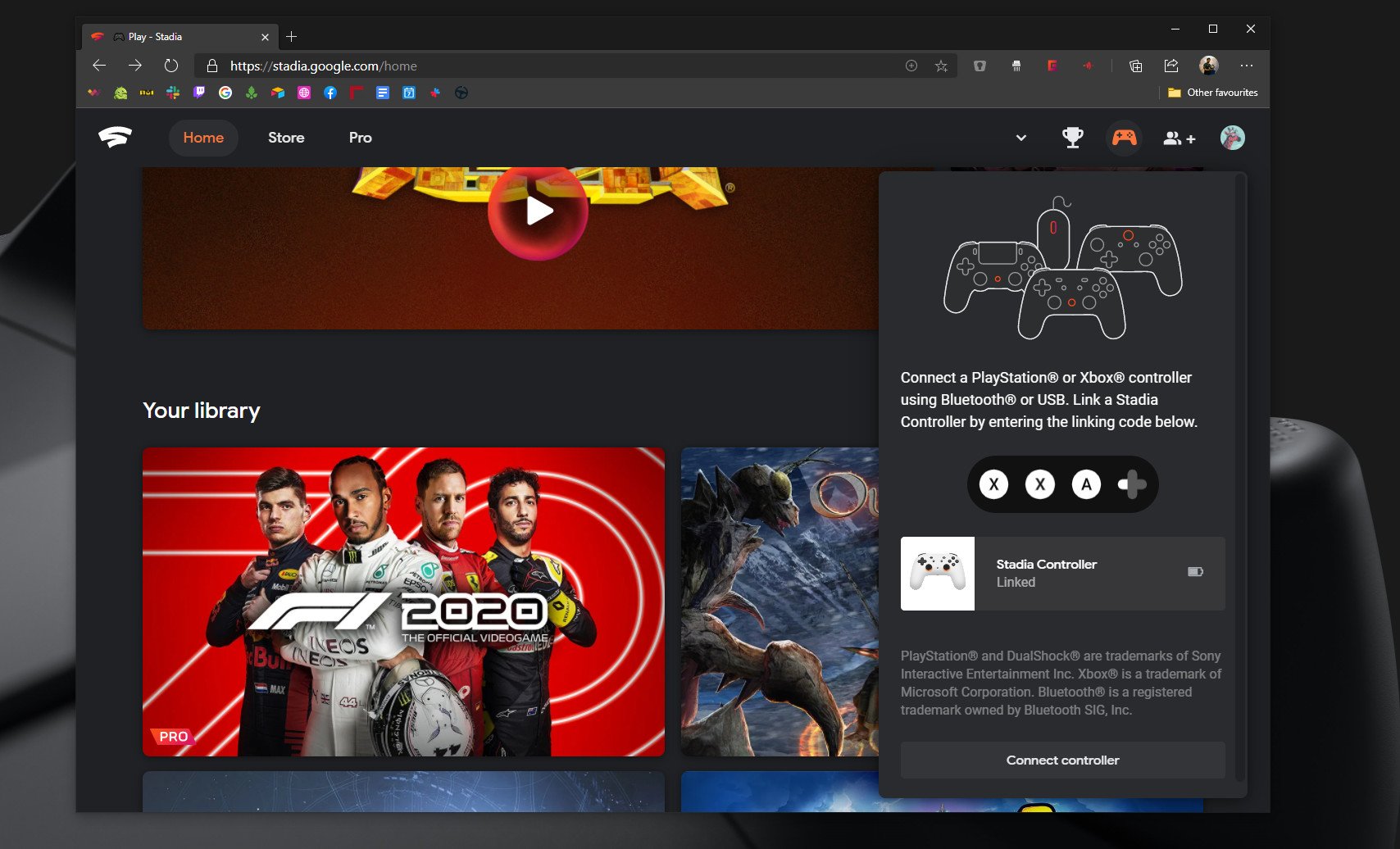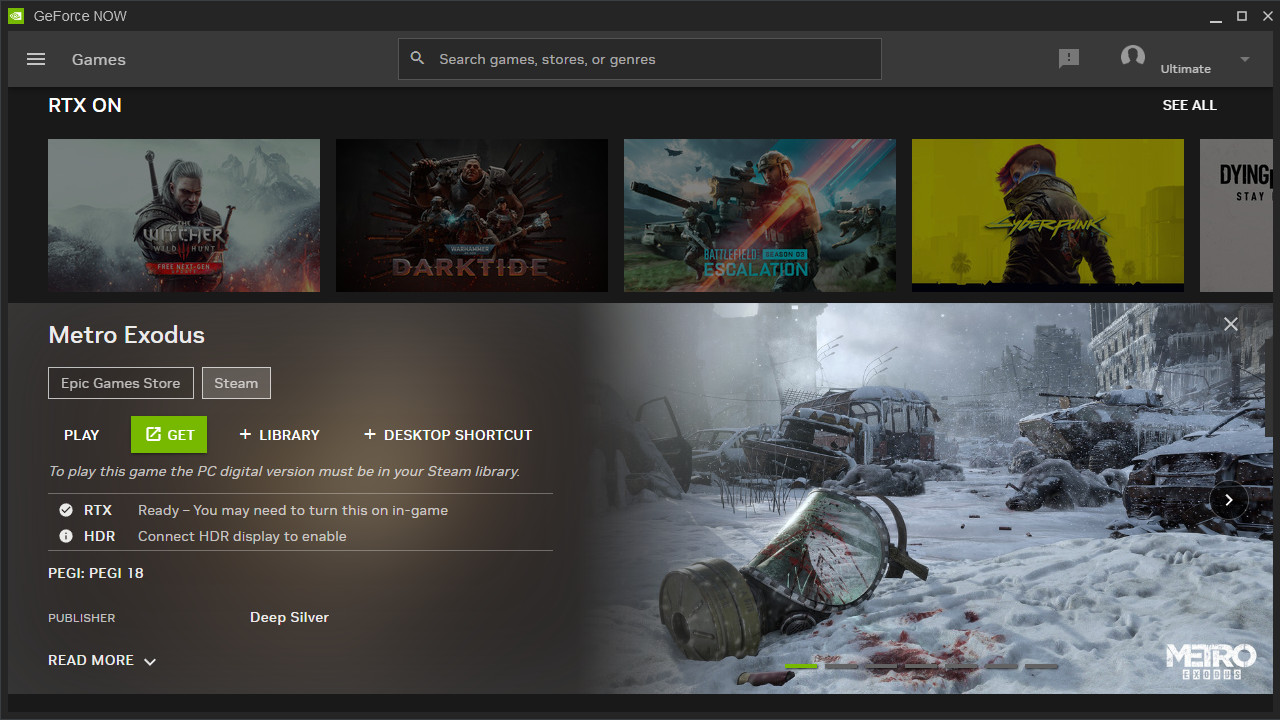Microsoft's Activision deal is being punished over Google Stadia's failure
But seriously, the cloud needs investment, not this.

All the latest news, reviews, and guides for Windows and Xbox diehards.
You are now subscribed
Your newsletter sign-up was successful
In case you didn't know, I'm British. So, I, like millions of others, must live with dumb decisions made by our country's legislators every single day. Today is no exception, because the UK body in charge of competition has decided for the most ridiculous reason to block the Microsoft Activision merger.
It's all because Google Stadia failed. Thanks, Phil Harrison.
Alright, that's not specifically it, but Google Stadia has an important part to play in this story. The deal is being blocked based on cloud gaming and how Microsoft would have too much of a dominant position. But here's the thing; Cloud gaming isn't profitable. Not really. It needs investment on a huge scale to make it what it promises to be. To be a place for all gamers regardless of their hardware to be able to play the best games available today.
Google couldn't make it work after three years of trying and lots of money spent, and now the British regulators have seen to it that one of the few companies that can really push it forward doesn't get too 'dominant'. I hate it.
Cloud gaming isn't a huge market, just ask Google
Google was one of the first to go big on cloud gaming, and let's face it, had plenty of resources at its disposal. Past reports suggested tens of millions of dollars being waved around to entice big games to the platform. And where is it now? Oh yeah, it's dead. Memes about Google killing things aside, that huge investment still wasn't enough to make Stadia a viable business.
Admittedly, it was a very different business model to Microsoft's. And I'd argue that Stadia should have been more like Xbox Game Pass and Amazon Luna to begin with. But this stuff is expensive, and it's still nowhere near as accessible as it needs to be for it to be a credible, long-term solution for gamers.
Microsoft has advantages Google did not. It has a library of games, it has a raft of agreements with publishers, and most importantly, it has other ways to make gaming revenue that aren't reliant on selling the cloud. But we've already seen one cloud gaming service fold, and you could argue part of that was its lack of games. You couldn't get Call of Duty on Stadia, or many of the other big titles people want to play. Without the games, there's no reason to play. Microsoft wants people to play games through the cloud.
All the latest news, reviews, and guides for Windows and Xbox diehards.
The sidenote is, though, that with one less player in the market it's easy for these regulatory bodies that should — but don't — know better to point a finger. Nuh uh, you're going to have too much power! Power over what, exactly? Cloud gaming is an emerging market. Harming investment in it will make sure it stays emerging for longer.
Microsoft will work with others, so what's the problem?
The other part of this whole cloud-related debacle that rubs me the wrong way is that Microsoft hasn't tried to show it's all about world domination. Did the company want to ink deals with NVIDIA to put Activision and Xbox titles on GeForce Now? Probably not, but the politics doesn't matter. What matters is that there was an agreement put in place. Same with Nintendo and a commitment to put Call of Duty on Switch for at least the next ten years. If Stadia still existed, maybe we'd have seen something similar there, too?
I just don't buy it. Outside of Xbox and NVIDIA GeForce Now what other cloud gaming platforms are there really that are trying to disrupt right now? Amazon Luna is alright, but it's still only available in a small handful of countries. I just recently (finally) got access to it in the UK and it's OK, but it's nothing spectacular.
Microsoft has also been happy to keep working with Sony throughout this whole ridiculous process. Know what Microsoft likes doing? Making money. So how would restricting access to one of the biggest games on the planet ever be in the best interests of that? I previously wrote how exciting the deals around this merger were for cloud gaming, now, I'm not so sure.

If the deal doesn't end up going through, we'll still have Xbox Game Pass cloud gaming and we'll still have GeForce Now. What you might not get is Call of Duty on the latter. Or the Nintendo Switch. Activision could do both of those things itself, likewise, agreeing any deals with Xbox and Sony to be on their respective platforms. But will they? And will Microsoft continue its commitment to put its own games on competing cloud platforms?
Instead of everyone getting to play, the UK CMA thinks it's OK if less people might get to play. How is that in the best interests of consumers?
Like most, I'm quite aware that Microsoft has probably been strongarmed into agreeing to be as liberal with the Xbox and Activision Blizzard game library in order to get the deal through. But that doesn't interest me. What interests me is commitments to get more games into the hands of more gamers. The CMA is supposed to protect against consumers. I get that, but do they? This isn't stopping Microsoft dominating cloud gaming. It's making it more likely that less of us will be able to enjoy these games.

Richard Devine is the Managing Editor at Windows Central with over a decade of experience. A former Project Manager and long-term tech addict, he joined Mobile Nations in 2011 and has been found in the past on Android Central as well as Windows Central. Currently, you'll find him steering the site's coverage of all manner of PC hardware and reviews. Find him on Mastodon at mstdn.social/@richdevine


